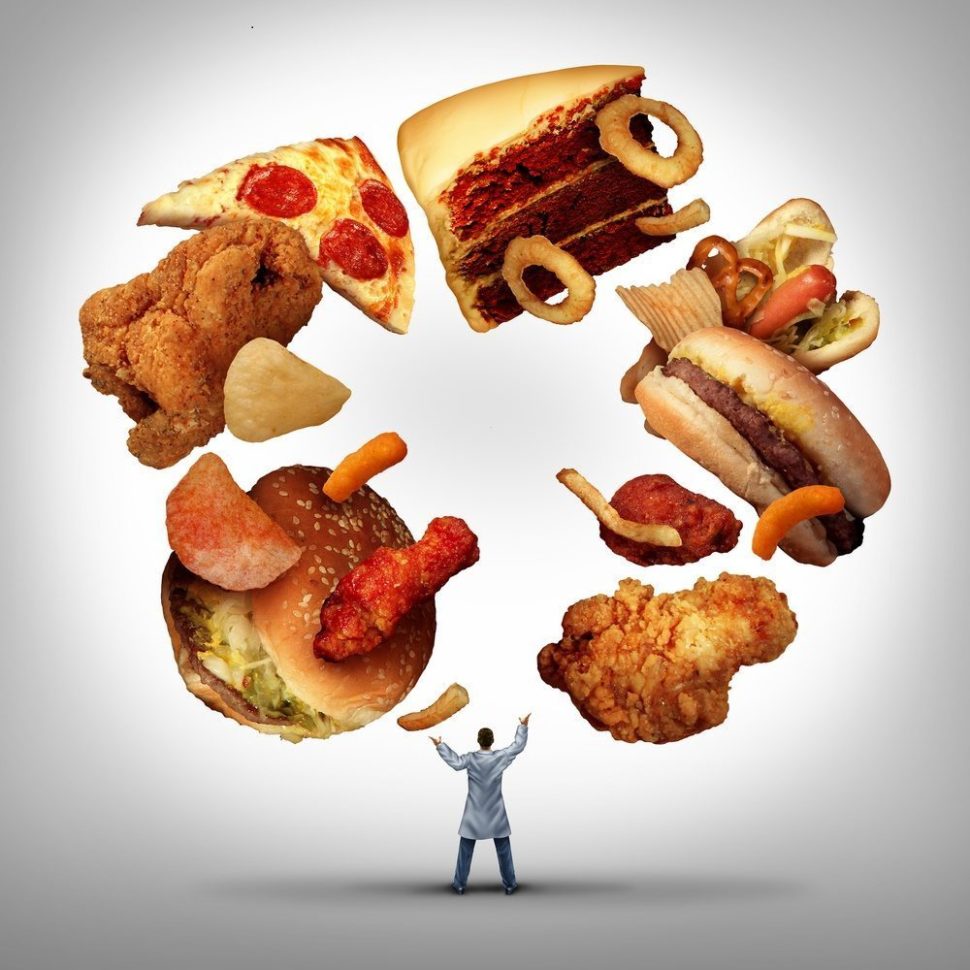Most people understand that eating junk food regularly is detrimental to one’s health. According to a new study by ETH Zurich and the University of Zurich, a diet too high in fat can disrupt brain development in young people. Scientific studies have many times called the consumption of junk food a genuine public health problem. Many times, their findings were indeed alarming. Nevertheless, high-fat fast-food chains continue to provide the brunt of many American’s diet. Even grocery stores are stocked with candy, chips, and other junk foods.
Junk foods are meant to attract young people in particular. They are loaded with sugar, salt, saturated fats, and seasonings designed to please the taste buds. Additionally, flashy packaging makes junk food easy to spot. They are easy to unpack, simple to prepare, and in many cases are ready to consume immediately. But these foods also often come with nutrient-barren substances like chemical colorings, flavor enhancers and preservatives.
“As in humans,” said Professor Urs Meyer from ETH Zurich, “the prefrontal cortex in mice matures mainly during adolescence.”
High-fat Food Intake Leads to Cognitive Impairment in Adulthood
A team of researchers from the Swiss Federal Institute of Technology (ETH Zurich) and the University of Zurich discovered that a high-fat diet could impair brain maturation in teenagers.
Scientists found that juvenile mice fed a diet rich in saturated fats (butter, cured meats, and coconut oil) showed first signs of cognitive impairment after just one month. Adult mice fed normal food showed weight gain but no cognitive defects.
In their study, published in the journal Molecular Psychiatry, researchers stressed that the development of these cognitive disorders was largely dependent on the age of the subject consuming a high-fat diet.
Avoid Junk Food All the Way through Adolescence
Maturation of the prefrontal cortex takes place during adolescence. The results obtained in mice can be transposed to the human being because this maturation during adolescence is at work in both humans and mice at similar points in their development.
“As in humans,” said Professor Urs Meyer from ETH Zurich, “the prefrontal cortex in mice matures mainly during adolescence.”
In mice just as in humans, this part of the brain is peculiar in that it matures slower than other cerebral structures. Prefrontal cortex maturation is completed when adulthood begins. Before this time, this part of the brain is vulnerable to stress, infections, traumas, and even unbalanced diets.
Researchers didn’t specify a threshold of saturated fat in diets at which damage to the prefrontal cortex would occur. For the purposes of the study, the amount of saturated fat introduced to the mice was greatly exaggerated to produce the effects desired.
Nevertheless, they recommended that parents pay close attention to a child’s nutrition as well as adolescents should watch their fat intake closely.















Comments (0)
Most Recent